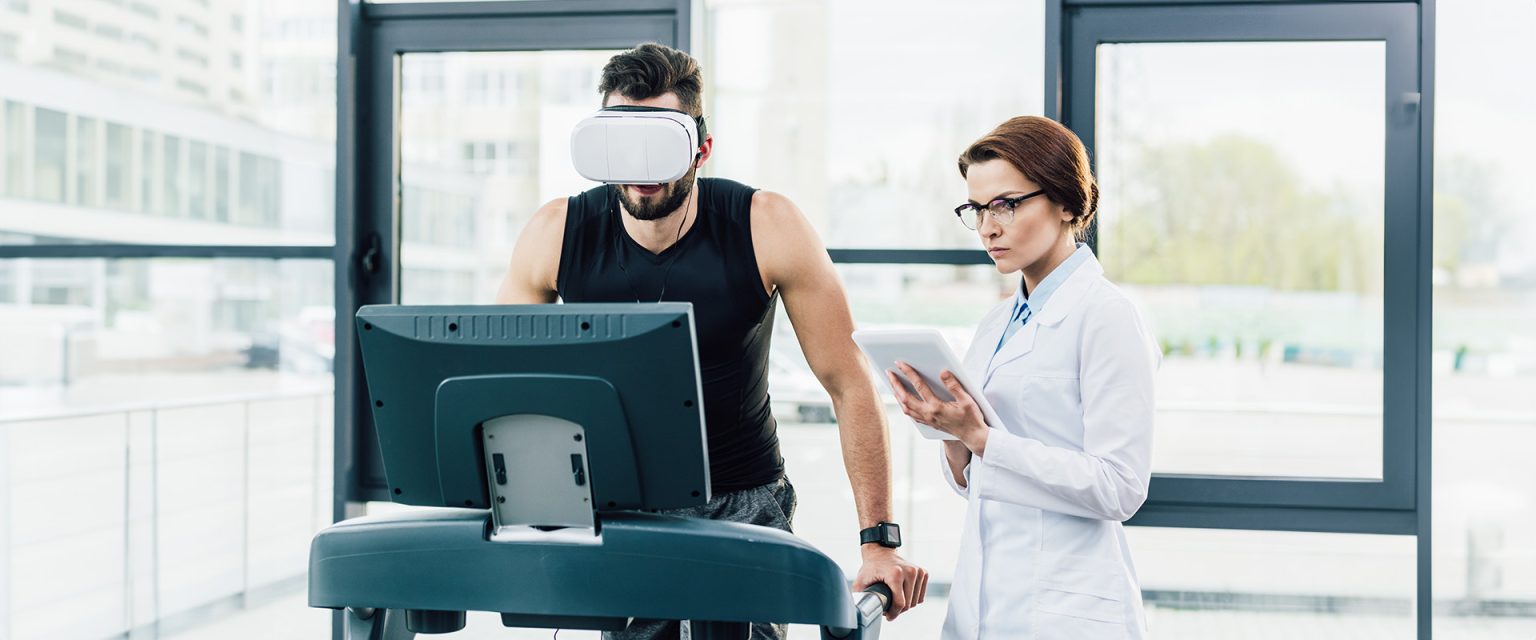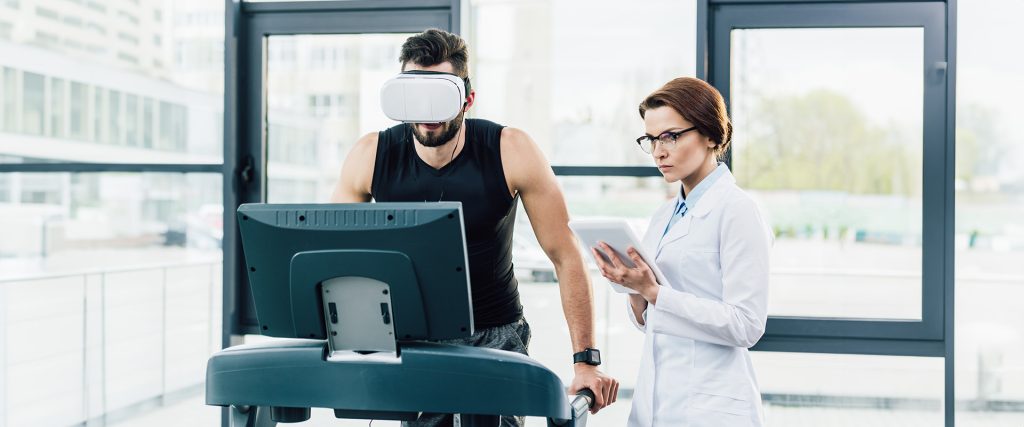AI’s Impact on Personalized Fitness and Health


AI’s Impact on Personalized Fitness and Health
Artificial Intelligence (AI) is revolutionizing various industries, and the fitness and healthcare sectors are no exception. By leveraging AI, we can achieve unprecedented levels of personalization in fitness routines and healthcare services. From customized workout plans to predictive health monitoring, AI is transforming how we approach health and wellness. This article delves into the significant ways AI is impacting personalized fitness and health, supported by real-world examples and detailed insights.
Table of Contents
- Introduction to AI in Fitness and Healthcare
- Personalized Fitness Training
- Customized Nutrition Plans
- Predictive Health Monitoring
- Enhancing Mental Health and Well-being
- Real-World Examples of AI in Fitness and Health
- Ethical Considerations and Challenges
- Future Trends and Developments
- Conclusion
Introduction to AI in Fitness and Healthcare
AI is significantly influencing the fitness and healthcare sectors by providing tools and solutions that enhance personalization and effectiveness. Through machine learning algorithms, data analysis, and real-time monitoring, AI enables a tailored approach to individual health needs and fitness goals.
Personalized Fitness Training
AI-Powered Fitness Apps
AI-powered fitness apps offer personalized workout plans based on user data, preferences, and goals. These apps analyze user input and feedback to adjust the intensity, type, and duration of exercises, ensuring optimal results.
Fitbod uses AI to generate customized strength training plans based on a user’s workout history, available equipment, and fitness goals. Read more.
Wearable Technology and Data Analysis
Wearable devices like fitness trackers and smartwatches collect data on various physical activities, such as steps taken, calories burned, heart rate, and sleep patterns. AI algorithms analyze this data to provide insights and recommendations for improving fitness and health.
Garmin’s wearable devices utilize AI to monitor fitness activities and provide personalized insights and recommendations. Read more.
Virtual Personal Trainers
AI-powered virtual personal trainers offer real-time guidance and feedback during workouts. These trainers use computer vision and machine learning to analyze movements and suggest corrections, helping users maintain proper form and avoid injuries.
Freeletics provides AI-driven coaching, offering personalized workout plans and real-time feedback to users. Read more.
Customized Nutrition Plans
AI helps create personalized nutrition plans by analyzing dietary habits, health goals, and nutritional needs. AI-powered apps and platforms can recommend meal plans, track calorie intake, and suggest healthier food options based on individual preferences and goals.
Eat This Much is an AI-powered meal planning app that generates personalized meal plans based on user dietary preferences and goals. Read more.
Predictive Health Monitoring
Early Disease Detection
AI algorithms analyze medical data and recognize patterns that may indicate the onset of diseases. By identifying early warning signs, AI can help healthcare providers take preventive measures and offer timely interventions.
IBM Watson Health uses AI to analyze medical records and detect early signs of diseases, such as cancer and heart disease. Read more.
Chronic Disease Management
AI supports chronic disease management by monitoring patient data and providing personalized recommendations for managing conditions such as diabetes, hypertension, and asthma. This continuous monitoring helps in adjusting treatment plans based on real-time data.
Glooko uses AI to help manage diabetes by tracking blood glucose levels and providing personalized insights and recommendations. Read more.
Enhancing Mental Health and Well-being
AI-driven applications and tools support mental health by offering personalized therapy, monitoring mood changes, and providing resources for managing stress and anxiety. These tools use natural language processing and machine learning to offer customized support.
Woebot is an AI-powered chatbot that provides cognitive-behavioral therapy and mental health support based on user interactions. Read more.
Real-World Examples of AI in Fitness and Health
1. AgeWiser.ai – Personalized Aging Support
AgeWiser.ai uses AI to provide personalized recommendations for healthy aging. The platform analyzes data from various sources, including health records and wearable devices, to offer tailored advice on nutrition, exercise, and lifestyle changes. Read more.
2. Fitbit – Activity and Health Monitoring
Fitbit’s wearable devices use AI to track physical activity, heart rate, and sleep patterns. The data collected is analyzed to provide personalized health insights and recommendations. Read more.
3. MyFitnessPal – Personalized Nutrition
MyFitnessPal uses AI to help users track their diet and exercise, offering personalized meal plans and fitness advice based on user goals and preferences. Read more.
4. Peloton – Personalized Fitness Classes
Peloton leverages AI to offer personalized workout classes and recommendations based on user preferences and performance data. Read more.
5. Apple Health – Comprehensive Health Monitoring
Apple Health integrates data from various health and fitness apps, using AI to provide a comprehensive view of a user’s health and fitness levels. Read more.
6. Noom – Behavior Change and Weight Management
Noom uses AI to offer personalized weight loss and behavior change programs based on user input and progress. Read more.
7. Lark – Health Coaching
Lark provides AI-powered health coaching, offering personalized advice and support for managing chronic conditions and improving overall health. Read more.
8. Headspace – Personalized Meditation and Mindfulness
Headspace uses AI to personalize meditation and mindfulness programs based on user preferences and progress. Read more.
9. Vi Trainer – AI Fitness Coach
Vi Trainer is an AI-powered fitness coach that offers personalized running and fitness plans, providing real-time feedback and motivation. Read more.
10. 8fit – Personalized Workouts and Meal Plans
8fit uses AI to create personalized workout and meal plans, helping users achieve their fitness and health goals. Read more.
11. Google Fit – Activity Tracking and Insights
Google Fit uses AI to track physical activity and provide personalized health insights and recommendations. Read more.
12. HealthifyMe – AI Nutrition and Fitness Coach
HealthifyMe leverages AI to offer personalized diet and fitness plans, tracking progress and providing real-time feedback. Read more.
13. Flo – Personalized Health Insights for Women
Flo uses AI to provide personalized health insights and recommendations for women, including menstrual cycle tracking and reproductive health. Read more.
14. Nike Training Club – Personalized Fitness Programs
Nike Training Club uses AI to offer personalized workout plans and fitness programs based on user preferences and performance data. Read more.
15. Adidas Runtastic – Personalized Running Plans
Adidas Runtastic leverages AI to offer personalized running plans and real-time coaching based on user data. Read more.
16. Calm – Personalized Meditation and Sleep Aid
Calm uses AI to provide personalized meditation and sleep programs, helping users manage stress and improve sleep quality. Read more.
17. Oura Ring – Health and Fitness Tracking
Oura Ring uses AI to analyze sleep, activity, and readiness, providing personalized health insights and recommendations. Read more.
18. Under Armour MapMyRun – Personalized Fitness Tracking
Under Armour’s MapMyRun app uses AI to track running activities and offer personalized fitness insights and recommendations. Read more.
19. Samsung Health – Comprehensive Health Tracking
Samsung Health uses AI to integrate data from various health and fitness apps, providing personalized insights and recommendations. Read more.
20. Virtuagym – AI Fitness Platform
Virtuagym offers an AI-powered fitness platform that provides personalized workout plans, nutrition advice, and real-time feedback. Read more.
Ethical Considerations and Challenges
Data Privacy and Security
The use of AI in fitness and health involves handling sensitive personal data, raising concerns about data privacy and security. Companies must implement robust measures to protect user data and comply with relevant regulations.
Algorithm Bias and Fairness
AI algorithms can inadvertently introduce biases, leading to unfair treatment of certain user groups. Ensuring fairness and transparency in AI systems is crucial for maintaining trust and equity in personalized fitness and health services.
Accuracy and Reliability
Ensuring the accuracy and reliability of AI-driven health and fitness recommendations is critical. Inaccurate data or predictions can lead to ineffective or harmful advice, underscoring the need for continuous monitoring and validation of AI systems.
Future Trends and Developments
As AI technology continues to evolve, its impact on personalized fitness and health will only grow. Future trends may include greater integration of AI with wearable devices, advancements in predictive health monitoring, and the development of more sophisticated AI algorithms tailored to individual needs.
Greater Integration of AI with Wearable Devices
The integration of AI with wearable devices will provide even more personalized and actionable health insights. These devices will generate vast amounts of data, which AI algorithms can analyze to offer real-time recommendations and support.
Advancements in Predictive Health Monitoring
Future advancements in predictive health monitoring will enable early detection of a wider range of diseases and conditions. These improvements will enhance preventive care and support timely interventions.
Development of Sophisticated AI Algorithms
The development of more sophisticated AI algorithms will allow for even greater personalization in fitness and health services. These advanced algorithms will provide deeper insights and more effective solutions tailored to individual needs.
Conclusion
AI is revolutionizing personalized fitness and health, offering powerful tools to enhance individual well-being and optimize health outcomes. From customized workout plans and nutrition advice to predictive health monitoring and mental health support, AI is transforming how we approach fitness and healthcare. As the technology continues to evolve, its impact on personalized fitness and health will only grow, paving the way for more innovative and effective health solutions.
For more insights and updates on the latest in AI and health, visit TGI.



